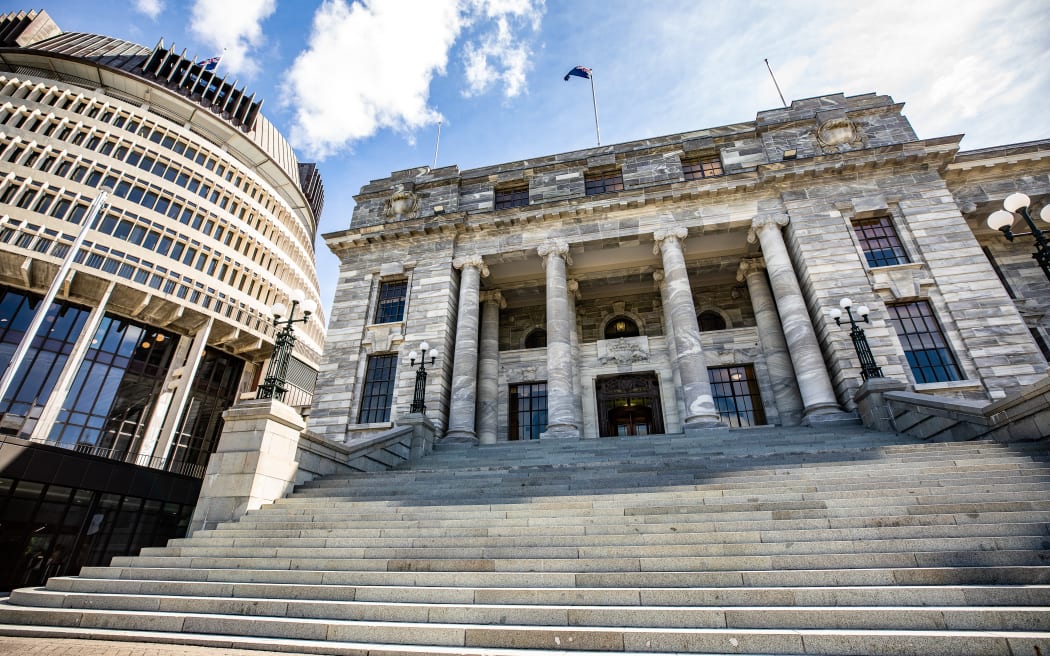We noted on Tuesday that it was likely to be a busy old week in Parliament – it was. The Debating Chamber was knee deep in Bills. Not literally thank goodness, but figuratively and electronically.
It’s often surprising just how many different topics the House can touch on in a week. MPs rostered on for House duty can hop-scotch across subjects like a tour of the dewey decimal system.
Many bills debated this week were in the ‘worthy but unexciting’ category, though both controversial and fascinating topics lay amongst them. But the more boring and less controversial a bill is, the faster it moves; which helps account for the week’s workload.

Photo: VNP / Daniela Maoate-Cox
Here is what the House touched on in this week’s debates:
-
The Accessibility for New Zealanders Bill was read a first time and referred to the Social Services Committee, which very unusually was given a longer working time. Typically committees get about 6 months to hear evidence and report back on a bill. But this bill is getting ten months - the better to make sure that any members of the disabled community that want to contribute, can.
-
The Electoral Amendment Bill was more contentious. It includes changes to donation limits before public transparency kicks in, and extends the periods kiwis can live overseas and still vote. It was read a first time and referred to the Justice Committee.
-
The Data and Statistics Bill passed its third reading and will now become law. It’s an modernisation of the rules for government collection and use of data.
-
The Family Court (Family Court Associates) Legislation Bill was read a first time and also referred to the Justice Committee. It desires to reduce pressure on the family court by introducing Associates to ease judges workloads.
-
The Local Government Electoral Legislation Bill was read a first time and referred to the Governance and Administration Committee. It’s an omnibus bill, which means it makes adjustments to multiple pieces of legislation and deals with numerous issues. Basically it’s difficulty to summarise.
-
The Three Strikes Legislation Repeal Bill is also contentious. This bill rolls back some restrictions that were put on judges’ sentencing freedom a few years ago by a National-Act coalition government. It finished its committee stage, which leaves just debate.
-
The committee stage of the New Zealand Bill of Rights (Declarations of Inconsistency) Amendment Bill was also completed. This is a fun bill for constitutional nerds and outlines a process whereby the Court can tell Parliament they think it is being naughty (by passing law in contravention of the Bill of Rights). Making declarations is the extent of Judiciary power in this circumstance because New Zealand courts can not strike laws down. Parliament has supremacy.
-
The Animal Welfare Amendment Bill began its committee stage, but didn’t finish. It bans some live animal exports.
-
Wednesday also featured a two-hour debate on the He Puna Hao Pātiki: 2022 Investment Statement. It’s a Treasury stewardship report required by legislation. It describes itself thus: “every four years the Minister of Finance must present to the House of Representatives a statement prepared by the Treasury that describes the state and value of significant assets and liabilities; how those have changed in value over time; how they are forecast to change over at least the next two years; and changes since the last statement.”
-
Member’s day saw two local bills and two members bills debated. The Canterbury Regional Council (Ngāi Tahu Representation) Bill was read a third time and will become law. It has been reported on here.
-
The Palmerston North Reserves Empowering Amendment Bill completed its committee stage and illustrates just how local and specific a local bill can be. This one concerns reserve land in Palmerston North that is controlled by earlier (old) legislation, preventing the local council from repurposing it.
-
One Member’s bill was the Child Protection (Child Sex Offender Government Agency Registration) (Overseas Travel Reporting) Amendment Bill. It was from Greg O’Connor (Labour), and extends sex-offender travel reporting rules to overseas trips. It passed a first reading and goes to the Justice Committee - along with almost everything else this week (despite that being just one of twelve subject committees).
-
A second members bill was from Chris Baillie (ACT) and sought to change the rules around Easter trading hours and Easter alcohol sales. It was rejected.
-
On Thursday the House focussed on the second readings of two bills: The Firearms Prohibition Orders Legislation Bill which would allow courts to ban some individuals from being anywhere near guns.
-
And the Overseas Investment (Forestry) Amendment Bill. This last one ran out of time about an hour short of the finishing line.
That’s 14 different bills debated, 12 of them completing a debating stage. Plus a long, extra debate on government investment strategy.
And tucked in amongst it all the new National Party MP for Tauranga Sam Uffindell delivered his maiden statement, which Johnny reported on yesterday.
You might think, after all of that, that the MPs would be in need of a bit of a lie down. But as it happens this weekend the National Party have their annual conference - where they will need to listen to yet more speeches.
For the rest of us there’s a new batch of freshly baked bills which are heading to select committee and ready for you to consider making submissions on.


